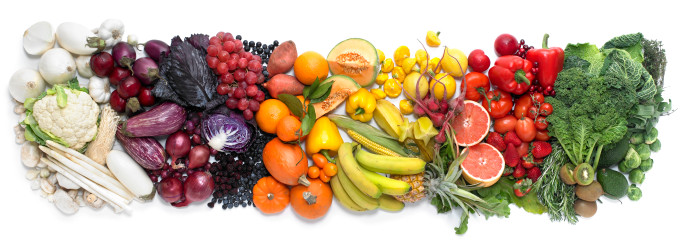Harvard Health recommends eating whole foods instead of taking expensive supplements to achieve nutritional balance and boost the immune system. In a report published in September 2016, Beverly Merz (Executive Editor, Harvard Women’s Health Watch) identifies 5 key micronutrients – vitamin B6, vitamin C, vitamin E, magnesium, and zinc – “often sold as immune boosters, in doses that greatly exceed the recommended daily allowance.”
Are you getting enough micronutrients?
So how can you make sure you’re fulfilling your nutrient needs? Unfortunately, a welter of conflicting studies has led to general confusion—and all too many studies lead to new marketing claims that may or may not be upheld by later research. In fact, the best way to get vitamins and minerals is from a well-rounded diet, with plenty of fruits, vegetables, legumes, whole grains, and lean sources of protein, along with healthy fats, such as nuts and olive oil. “You should ideally try to meet your vitamin and mineral needs through your diet rather than supplements,” says Dr. Howard D. Sesso, associate professor of medicine at Harvard Medical School and Medical Editor of the Special Health Report Making Sense of Vitamins and Minerals: Choosing the foods and nutrients you need to stay healthy. (Merz)
Take contemporary diet advice a step further with Ayurveda
Learn which foods in each category are most beneficial to YOUR individual health based on the food’s energetics (heat or cold effect on the body, post-digestive effect, and actions on the body) and effect of the six tastes (sweet, sour, salty, bitter, astringent, and pungent) on the doshas (vata, pitta, kapha). When we balance the doshas nourish ojas (the life giving fluids which circulate throughout the body, bathe every cell, provide nourishment, and immune system protection) with food, the body has more energy, is stronger, and is better equipped to fight disease.
Food wisdom elevated with Ayurveda!
Foods to boost your immune system
Vitamin B6 available from chicken (white meat VPK=, red meat V-P+K+), cereals (V-P-K+), bananas (V-P-K+), pork loin (V-P+K+), potatoes with skin (V+P-K+)
Vitamin C available from tomatoes (V-P+K-), citrus fruit (V-P+K-), sweet peppers (V+P-K-), broccoli (V+P-K-), kiwi fruit (V-P+K+)
Vitamin E available from sunflower seeds and oil (VPK=), almonds (V-P-K+), safflower oil (V-P+K+), peanut butter (V-P+K+)
Magnesium available from whole wheat (V-P-K+), legumes (in general, depends upon variety and preparation V+P-K-), nuts (in general, depends upon variety V-P+K+), seeds (in general, depends upon variety VPK=)
Zinc available from oysters (V-P+K+), beef shank (V-P+K+), Alaskan king crab (V-P+K+), turkey (dark meat V-P+K+), pumpkin seeds (VPK=)
What foods are best for me?
To learn more about the foods best suited to you, schedule with a practitioner at Roots of Wellness Ayurveda!

